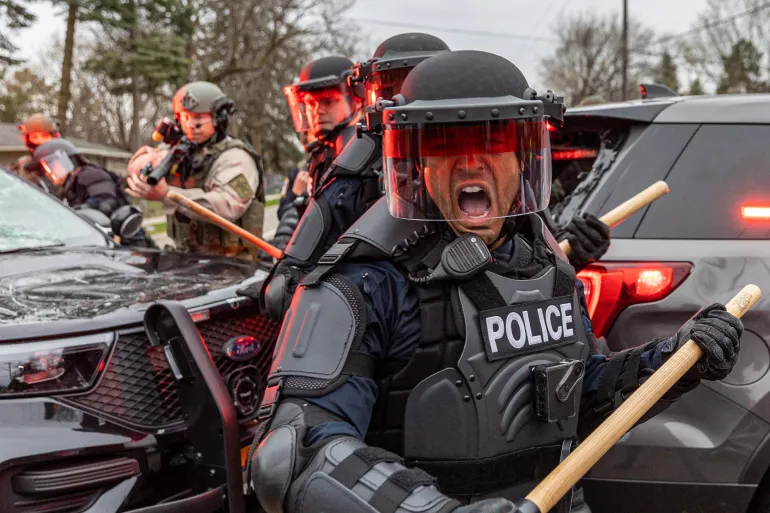Two years later, the U.S. Justice Department completed a probe of the Minneapolis Police Department and found that, for Black as well as for Native American people, it practiced dress code friendly. Sparked by George Floyd’s 2020 murder, the probe’s findings paint a picture of a force gone bad in an 89-page report. They upheld numerous gripping eyewitness accounts lasting decades or more about police misconduct on the people.
Findings
These are some of the main findings of the investigation, as detailed by U.S. Attorney General Merrick Garland.
- Excessive force as part of everyday police activity, sometimes for no reason
- Police use of killer force, when unjustified and in unreasonable situations disposal Tasers
- Regular violations of locals’ constitutional rights on the whim of policemen
- Use of potentially life-threatening neck restraints, despite their having been outlawed by the city
- Policemen failing to intervene when colleagues employ excessive force
- Individuals with mental health disabilities are subject to discrimination
- Unconstitutional retaliation on protestors and journalists
Although Garland was quick to point out that many officers “perform their difficult work professionally,” the patterns and practices observed in Minneapolis made incidents like Floyd’s death possible.
Federal Oversight and Reform
In response to these findings, Minneapolis has agreed to undergo federal oversight as it works to reform its police department. Mayor Jacob Frey and other city officials will negotiate a consent decree with the Justice Department, which a federal judge will oversee to ensure progress in implementing reforms.
Community Response and Ongoing Concerns
The report has been cautiously welcomed by community members, including civil rights activists who have maintained a years-long protest at the intersection where Floyd was killed. Marcia Howard, a Minneapolis teacher and activist, stated that the findings emphasize what Black and Indigenous people have been saying for years about living under a racist regime in the Minneapolis Police Department.
Background on George Floyd’s Murder
The investigation was launched in April 2021, following the conviction of Derek Chauvin for murdering George Floyd. Floyd’s death, captured on video, sparked nationwide protests against police brutality and systemic racism. The incident highlighted long-standing complaints about the Minneapolis police force’s treatment of Black residents.
Federal and Local Response
NEW: This position is important So we should strongly reject the notion that a boss has to be willing and able to reward subordinates who give him or her “ego gratification.””Reward-driven ideology”–including its latest promotion, the notion that a boss can grant rewards only when he has “ego gratification” from subordinates for so cooperating with them into being his ego gratification devices–creates
congress is demanding that President Joe Biden, the police chief last week announced a raft of proposed reforms for departmental review and prescription, but he made no effort to rule out: the efforts themselves will be determined by a focus on whether it helps make Minneapolis feel safer for people in police presence Molesting, though he agreed that success would be defined by residents being able to maintain a sense of security whenever Copernicus spoke during ward meetings.”
What Happens Next? How We Reach Close-in Agreements with the Justice Department
Many months likely await the process of negotiating a consent decree with Justice’s Civil Rights Division. Other cities that have seen their police departments come under federal oversight include Ferguson, Missouri, Baltimore and Cleveland.
Floyd Death for Police Who Face ChargesIn Derek Chauvin, one of the officers who was found guilty in Floyd’s death, is now serving a 21-year sentence in federal prison after pleading guilty to violating his constitutional rights. At the same time, three other officers involved with this crime are being convicted on both local and national charges.
Under the supervision of the Justice Department, the city of Minneapolis must now embark on an effort to build credibility in both law enforcement and among those being policed. The arrival of such a federal program will be an important step towards meeting many longstanding problems of excessive force and racism within Minneapolis’s police department at once.

